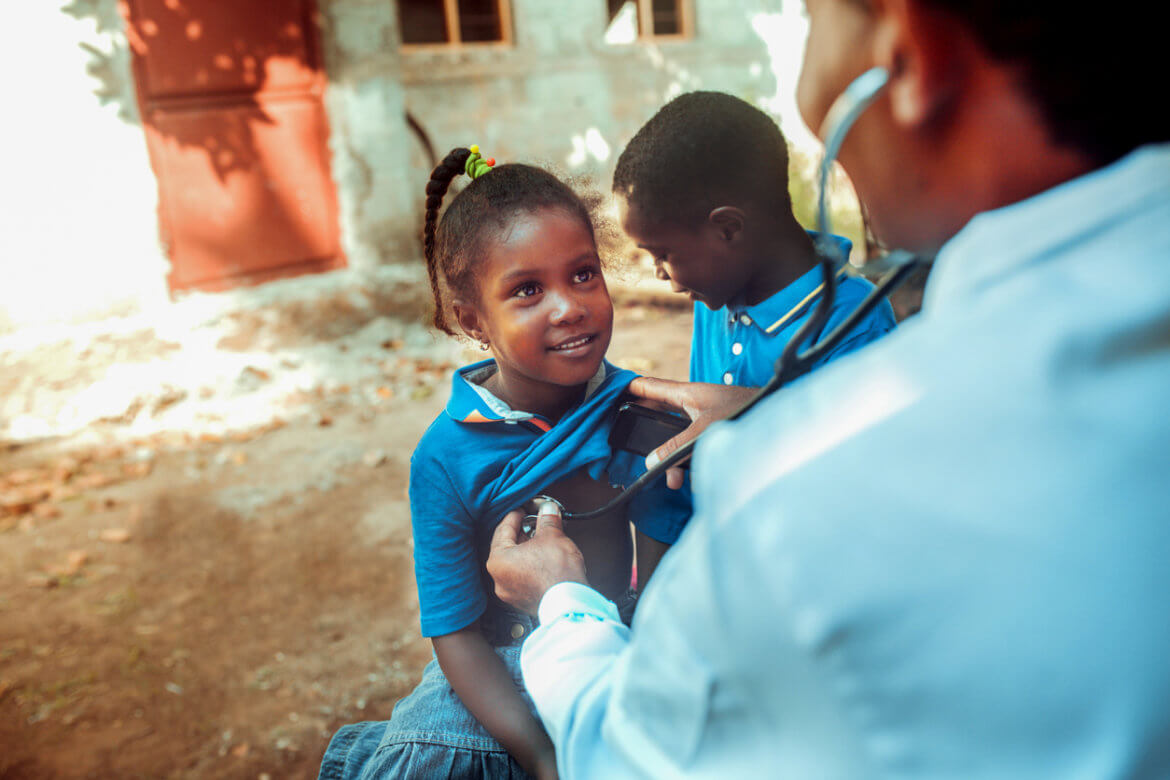The analysis of Interventions in Development Aid (AIDA) study aimed to explore and propose a principled framework for thinking about and discussing donor co-financing decisions. With support from iDSI, researchers from the University of Strathclyde and the University of Ghana explored the issue in the context of Gavi, the Vaccine Alliance (Gavi) co-financing countries as they transition towards graduation and fully financing their vaccination programmes, focusing on Ghana and a set of comparator countries at different points on the transition pathway.
We summarise here the methods and the recommendations offered by the authors of the study. A full report and related publications are forthcoming.
Report authors: Itamar Megiddo, Justice Nonvignon, Richmond Owusu, and Alec Morton
Methods
The study was a mixed-methods approach that included both a quantitative analysis based on a donor-country (DC) model and qualitative research, largely based on a stakeholder forum to explore the DC model approach and the wider political economy issues. The DC model suggests that to achieve the greatest health gains countries should fund cost-effective interventions (compared to a cost-effectiveness threshold) and donors such as Gavi should prioritise co-financing interventions that are “just cost-ineffective” by providing funds to make them cost-effective from the country perspective.
To perform the quantitative analysis, we explored the DC model in the context of Gavi co-financing vaccines and we compared its suggested outcomes and Gavi co-financing policy. We explored the model using four types of data: a review of gross domestic product (GDP)-based cost-effectiveness thresholds, data on countries GDP, a review of vaccine cost-effectiveness studies in the study settings, and data on Gavi co-financing from Gavi country progress reports and decision letters. The stakeholder forum was conducted online, due to challenges posed by the Coronavirus disease pandemic. It included participants with significant experiences in vaccination programmes, including from the different parts of the Ghana government, the WHO, and Path.
Recommendations
- The inconsistency of cost components across cost-effectiveness analyses (CEAs) of vaccines poses a challenge for developing a cost-effectiveness based donor co-financing framework. Different studies give different results but cannot be directly compared because of differences in the costing assumptions. This is currently a major stumbling block in taking an evidence-based approach to vaccination policy for both countries and donors, though variability in reporting is understandable due to the differing study purposes and audiences.
- Reporting of inputs and outputs of CEA studies should be transparent and complete to allow reproducibility from different perspectives. The data which is gathered within a CEA is typically of considerable value for a range of planning tasks. The current standard of reporting in the literature does not permit that data to be extracted and checked. As a result, the scientific community is punching below its weight.
- Gavi should use an explicit normative model to underpin its co-financing policy. Currently, Gavi co-financing appears ad hoc and hard to understand. In the interests of both equity between partner countries and accountability to its funders, Gavi should make more explicit use of normative economic models in determining its contributions.
- More research is needed on how donor co-financing can encourage sustainability. By co-financing vaccination programmes and by setting explicit expectations about transition, Gavi does support countries to think about financial sustainability for vaccination. However, sustainability remains a challenge for many graduating countries. More work is needed to understand how sustainable financing for vaccination can be facilitated and incentivised.
- The burden of disease should remain an important factor when making decisions on which vaccines to co-finance. A clear message from stakeholders was that while cost-effectiveness is useful, disease burden (and thus population health and budget impact) is key for in-country decision-makers. Donor policy and theoretic analysis should explicitly account for this dimension alongside information about cost-effectiveness.
Acknowledgements
We would also like to thank the stakeholders that participated in the stakeholder forum: Kingsley Addai Frimpong (World Health Organization Ghana Country Office), Brian Asare (Health Technology Assessment Secretariat, the Ghana Ministry of Health), George Armah (Noguchi Memorial Institute, University of Ghana and Ghana National Immunisation Technical Advisory Group [NITAG]), Angela Ackon (Health Technology Assessment Secretariat, the Ghana Ministry of Health), KwadwoOdei Antwi-Agyei (Center for Vaccine Access and Innovation, PATH Ghana), John Bawa (Center for Vaccine Access and Innovation, PATH Ghana ), and Genevieve Cecilia Aryeetey (School of Public Health, University of Ghana).
